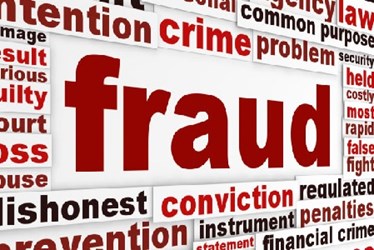NSF Conference Emphasizes A Proactive Approach To Conquering Food Fraud
By Melissa Lind, contributing writer

The National Science Foundation’s conference, The Future of the Food Industry, was held in London last month with food fraud and prevention serving as the major topic at hand.
Technical experts, academics, science professionals, along with government officials convened upon The National Science Foundation’s (NSF) conference to discuss methods of tackling the problem of a dramatic rise in fraud across food’s supply chain. NSF indicated that though criminal fraud was not a new issue, it has become a larger problem than ever before in the food industry.
Fraud is generally thought of as an issue of misrepresentation, substitution, or adulteration of food products, such as fraud within the seafood chain — most-commonly involving small batches of mislabeled fish or illegal fishing. However, NSF experts believe the threat is much larger, involving organized crime.
The industry has not generally thought of fraud as a safety risk, but NSF has encouraged that the two issues be seen as related topics. NSF stated that the incidence of fraud in the food industry’s supply chain may cost the global economy $49 billion or more annually and is increasing for a number of reasons including:
- Growing length of the food supply chain
- Concentration of buying groups into fewer major chains, which provide a downward force on pricing
- Increasing the use of refrigerated storage and shipments which enables wider spread of perishable products
- Rapid development of communication and technological tools that encourage illicit, covert business transactions
In efforts to curtail the spread of criminal fraud across the food supply chain, industry participants must consider fraud alongside safety concerns with a similar view of prevention and proactiveness. NSF has proposed activities that businesses should undertake immediately to combat potential fraud including:
- Setting company objectives regarding the focus on fraud with appointed leadership.
- Reviewing supplier contracts, including terms and conditions, making it clear that opaque substitutions will be met with criminal action.
- Knowing suppliers and learning about their suppliers with the one up / one down approach. Being able to identify where your supplier gets supplies without intervention and being confident they can do the same are essential.
- Knowing your own products. This includes establishing specifications and control measures regarding the products your company uses and produces.
- Reviewing risks and setting up control programs to test and correct for potential issues. Your company’s program should involve a team approach and new technology integration as much as possible.
- Following up on concerns and complaints. Don’t let issues be overlooked, ask questions, and address any concerns with suppliers.
- Running realistic scenario tests to challenge traceability systems. This will help identify issues before they occur.
Other areas covered in the conference included tools, such as social media and nanotechnology, to identify and respond to threats, and tools to aid in risk assessment and enhance cooperation between food sectors and government entities. As with recent, food-safety regulations, the emphasis on combatting food fraud is being placed on proactive functions to prevent threats rather than reaction to them up discovery.
